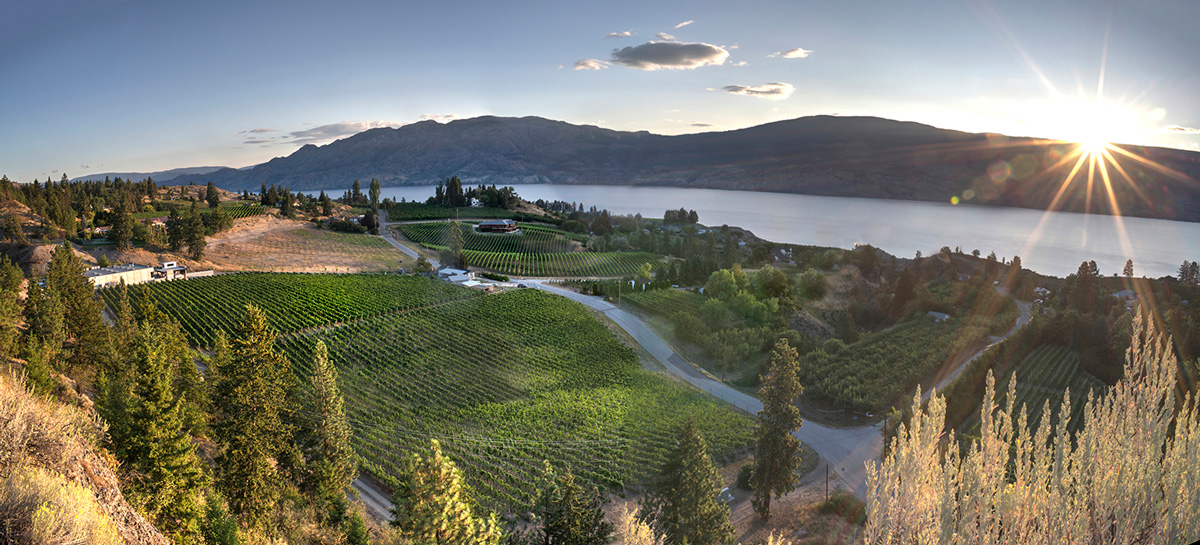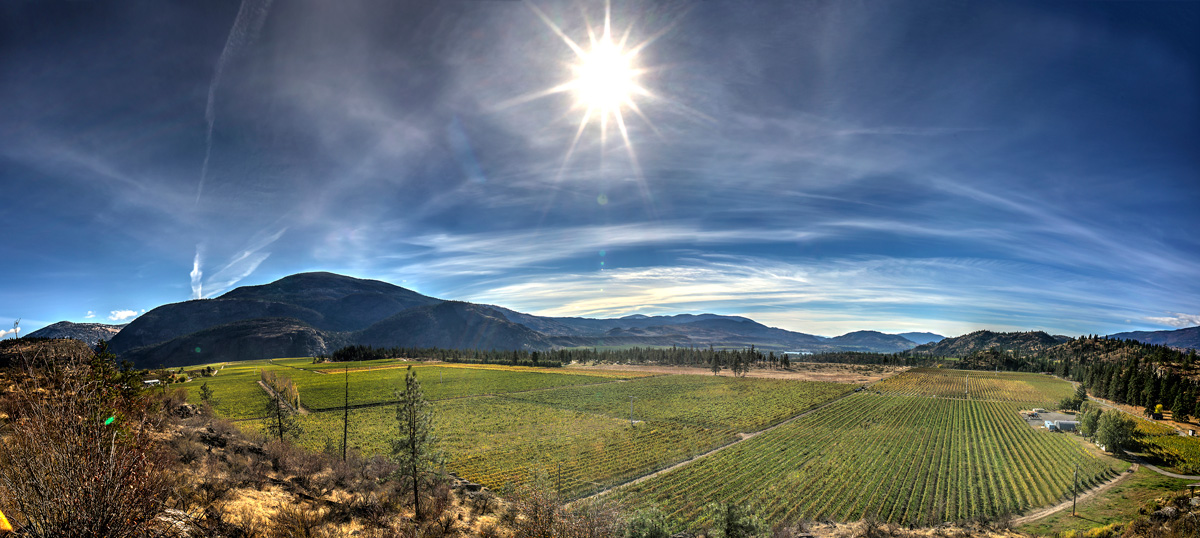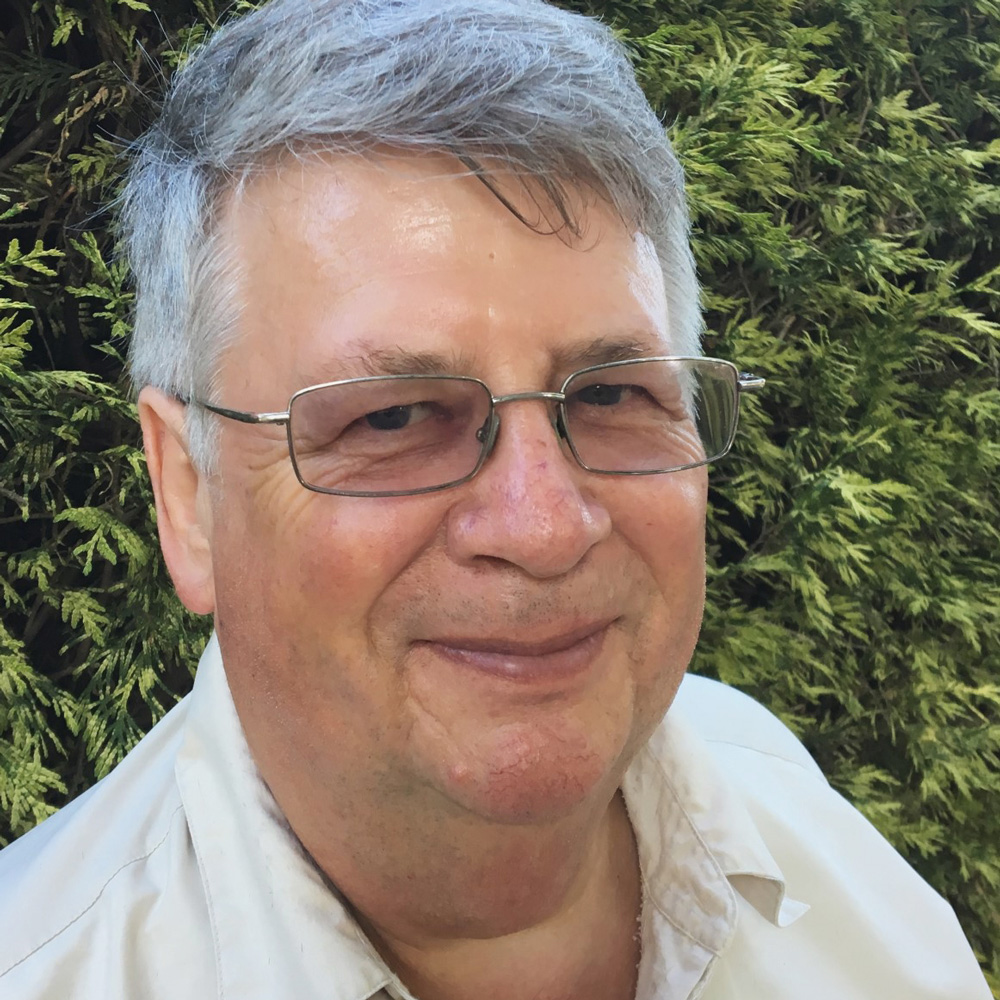
Wine Culture Magazine

Okanagan Crush Pad’s Switchback vineyard. Lionel Trudel, TrudelPhoto.com
One of the wine industry’s movers and shakers, Okanagan Crush Pad is at the fore in BC’s move to organic wine-growing. Owner Christine Coletta, who has been on this path for well over a decade, reflects on the changes which have taken place.
“We now have 100-plus acres that are certified organic,” says Coletta. “That’s a pretty big deal. And we’ve been working towards this since 2011.”
Coletta says the prime motivation for going the certified organic route came from a concern for “the health and well-being of ourselves, our customers and the animals that live on our land—and just the longevity of our land.”
But, equally as important, she’s now a firm believer that “you make better wines from organically grown grapes because you achieve phenolic ripeness earlier—without having those brutally high sugar levels.”
Coletta also notes Okanagan Crush Pad has discovered it can harvest the organically grown vineyard sooner, at lower brix levels than conventionally farmed land, and still get the desired flavour profile. The true ‘aha moment’, she confides, came during the 2016 vintage at the home Switchback Vineyard. The crew could see that the fruit, prior to picking, was “light years ahead of where we’d been in 2009.”

Okanagan Crush Pad’s Secrest Mountain vineyard has been transitioning to organic over the past five years. Lionel Trudel, TrudelPhoto.com
For sure, the vineyard was more mature. But there’s no doubt that the switch to organic farming had made a big impact. Coletta says the same is true of recently purchased Secrest Mountain Vineyard, with whom Crush Pad had been working to conversion over five years. She points to the current vintage of Secrest Mountain Chardonnay as what can be achieved—a prime example of “a spectacular transformation.” The winery is also now seeing early results from their new, high altitude Garnet Valley Ranch vineyard, which was certified organic from day one.
From the outset Okanagan Crush Pad has been working with leading viticultural experts Alberto Antonini and Pedro Parra.
“When Alberto arrived in 2010, he looked at the vineyard he said: ‘I don’t understand why you’re not farming it organically.’ And I said, ‘Well, apparently it’s too much trouble,’” recalls Coletta, who notes at the time not everyone was convinced of the need to ‘go organic.’
Antonini then asked: “What would you rather have? Dead soil? Or living, healthy soil and vibrant plants? Is that too much trouble?”
“What he said to me was fundamentally game changing,” she says. “He basically told me ‘you don’t own this property; you’re just here for a short period of time. And you have a duty to leave it in better condition than you found it. Because this (land) is not yours. This belongs to the to the world.’”
“I think Europeans have a notion that we don’t have in North America. They really do; because they hand things down from generation to generation. We don’t know because we don’t have that history. So we abuse and move on.”
“It was a real awakening moment for me in terms of what we were doing, not just in this vineyard, but in what we were going to do everywhere else.”

Tim Pawsey writes and shoots at hiredbelly.com as well as for publications including Quench, TASTE and Montecristo. He’s a frequent wine judge and is a founding member of the B.C. Hospitality Foundation.

Tim Pawsey writes and shoots at hiredbelly.com as well as for publications including Quench, TASTE and Montecristo. He’s a frequent wine judge and is a founding member of the B.C. Hospitality Foundation.
Copyright © 2025 - All Rights Reserved Vitis Magazine